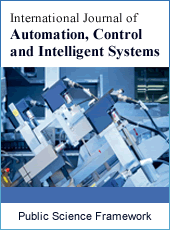International Journal of Automation, Control and Intelligent Systems
Articles Information
International Journal of Automation, Control and Intelligent Systems, Vol.1, No.3, Sep. 2015, Pub. Date: Aug. 6, 2015
The Human Factor in Road Traffic City
Pages: 77-84 Views: 5474 Downloads: 1561
[01]
Oleksii Prasolenko, Department of Transport Systems and Logistics, O. M. Beketov National University of Urban Economy in Kharkiv, Kharkiv, Ukraine.
[02]
Oleksii Lobashov, Department of Transport Systems and Logistics, O. M. Beketov National University of Urban Economy in Kharkiv, Kharkiv, Ukraine.
[03]
Andrii Galkin, Department of Transport Systems and Logistics, O. M. Beketov National University of Urban Economy in Kharkiv, Kharkiv, Ukraine.
The driver while moving receives a lot of information about the character and modes of driving. In the process of information perception the driver must not only find necessary one, but also to revise, analyze, take appropriate action. Basis on this decision the driver must take action. The whole process from the perception to the action requires a certain amount of time, which may not be enough, according to traffic situations. In this case, the driver can make wrong decisions and actions. These reasons are the result of the mental state, driver fatigue, absence or insufficient experience of driving skills and others reasons. The driver while driving should keep for a long time the optimal emotional state. The most optimum state has been given quickly and effective process of proceeds from the perception of information to the implementation it to actions in traffic situations. The deviation from the optimal emotional state complicates the process of information perception and recycling process and increases the number of erroneous in driver’s actions. The study aims is measuring of the complex traffic situations impact on the driver’s emotional state. During movement process driver is faced with different traffic situations: pedestrians, “heavy traffic”, traffic jam, etc. From condition of the driver’s error’s numbers depends from his condition. Selecting the optimum driving mode allows avoiding stress while driving. It is important to identify and examine the factors that effect on the driver’s error in stressful driving situations and conditions of driver’s characters changes.
Road Traffic, Road Traffic Accidents, Critical Traffic Situations, Driver, GSR, Emotional State, Vehicle, Cities, Environment
[01]
Dmytrychenko M. et al., (Eds), (2007) Systemology transport: Basic theory of systems and control. Vol. 4. Knowledge, Kyiv, Ukraine. (rus)
[02]
Rankin V., Claffe P. and Halbert S (1981), Automobile transportation and traffic arrangement. Transport, Moscow.
[03]
Button, J. and Hensher, D. (2001), Handbook of transport systems and traffic control. Pergamon, Amsterdam.
[04]
Romanov A. N. (2002) Motor transportation psychology. Proc. The benefit for students. Publishing center "Academy", Moscow (rus)
[05]
Rigas G., Katsis C. D., Bougia P. and Fotiadis D. I., “A reasoning-based framework for car driver’s stress prediction,” Control and Automation, 2008 16th Mediterranean Conference on, vol., no., pp. 627-632, 25-27 June 2008.
[06]
Shiwu L., Linhong W., Zhifa Y., Bingkui J., Feiyan Q. and Zhongkai Y., (2011) An active driver fatigue identification technique using multiple physiological features. Mechatronic Science, Electric Engineering and Computer (MEC), III International Conference, pp. 733-737, 19-22 Aug. 2011.
[07]
Andreassi, J. (2007) Psychophysiology: Human Behavior And Physiological Response. In Psychophysiology: Human Behaviour & Physiology Response, Lawrence Erlbaum.
[08]
Lykken, D. T., Venables, P. H. (1971) Direct measurement of skin conductance: A proposal for standardization. Psychophysiology, no. 8, pp. 656–672.
[09]
Legendre, P. (2010) Coefficient of concordance. Pp. 164-169 in: Encyclopedia of Research Design, Vol. 1. N. J. Salkind, ed. SAGE Publications, Inc., Los Angeles.
[10]
Cochran, W. G. (1952) The χ test of goodness of fit. Annals of Mathematical Statistics, 25, pp. 315–345.
[11]
Ponkratov D., Іvanov I., Prasolenko O., Grigorova T., Lobashov O. and V. Dolya (2015) Traffic Streams and Anti-Congestions Activities in City Networks. International Journal of Automation, Control and Intelligent Systems, Vol. 1, No. 2, pp. 21-26

ISSN Print: 2381-7526
ISSN Online: 2381-7534
Current Issue:
Vol. 4, Issue 4, December Submit a Manuscript Join Editorial Board Join Reviewer Team
ISSN Online: 2381-7534
Current Issue:
Vol. 4, Issue 4, December Submit a Manuscript Join Editorial Board Join Reviewer Team
| About This Journal |
| All Issues |
| Open Access |
| Indexing |
| Payment Information |
| Author Guidelines |
| Review Process |
| Publication Ethics |
| Editorial Board |
| Peer Reviewers |


